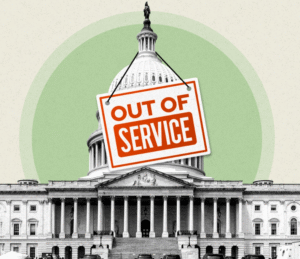October 6, 2025 | 3 Minute Read
The U.S. federal government is about to shutdown, and if you’re in real estate, this isn’t just a political story — it’s a business risk. Funding delays can ripple across mortgage approvals, development projects, and property management operations, slowing deals and squeezing cash flow. Here’s what you need to know and how to stay ahead.

How a Shutdown Hits Real Estate
- Mortgage and Loan Delays
FHA, VA, and USDA loans may grind to a halt as federal staff are furloughed. Even conventional loans can face verification bottlenecks. Buyers depending on these programs could see postponed closings or canceled deals. - Affordable Housing Program Disruptions
Programs like Section 8, PBRA, and HUD contract renewals may stall. Operators risk cash flow gaps, delayed maintenance, and compliance headaches if funding pauses stretch out. - Verification Bottlenecks
Agencies like the IRS and SSA may stop processing tax transcripts and income verifications, slowing lender approvals for mortgages and refinancing. - Regulatory and Permitting Delays
Federal reviews, environmental assessments, and certifications for new developments may be delayed, stretching timelines and adding costs. - National Flood Insurance Program (NFIP) Lapses
If NFIP authority lapses, flood insurance issuance may pause — a big problem in FEMA-designated zones. Transactions can stall, creating uncertainty for buyers, sellers, and lenders. - SBA Loan Suspension
New Small Business Administration loans may be frozen, impacting acquisitions, renovations, or expansion projects. Liquidity can tighten, slowing growth. - Federal Leasing and Contract Delays
Real estate involving federal tenants or properties may face stalled lease negotiations, renewals, and service contracts, affecting landlords and service providers. - Demand Slowdown Near Federal Employment Hubs
Markets with high concentrations of federal workers or contractors may see reduced leasing activity, lower foot traffic, and rising vacancy risk. - Credit and Capital Market Constraints
Lenders may tighten credit standards and raise risk premiums due to uncertainty. Access to capital can shrink, especially for deals dependent on federal programs. - Suspension of Federal Economic Data
Key economic reports may pause, leaving investors and developers in the dark. Slower decision-making and cautious capital deployment may follow.
How Real Estate Investors Can Respond
- Stay Informed
Monitor Congressional negotiations and agency updates. Industry associations are a great source for real-time insights. - Flag Vulnerable Deals
Review transactions dependent on federal funding, approvals, or insurance. Communicate risks to buyers, lenders, and title agents, and prepare backup options like alternate financing or contract extensions. - Talk to Lenders Early
Ask about workarounds for verification delays and keep open lines of communication to avoid surprises. - Manage Cash Flow
Ensure you have reserves or credit lines to handle delayed revenue. Strong liquidity can keep operations smooth through uncertain periods. - Negotiate Contract Flexibility
Incorporate contingencies, buffer days, and “drop-dead” dates in agreements. This protects deals and maintains client confidence. - Explore Alternative Financing and Insurance
Consider conventional loans if federal programs stall and private flood insurance in high-risk areas. - Adjust Marketing and Sales Expectations
Set realistic timelines and focus on deals less dependent on federal approvals to maintain momentum. - Diversify Focus
Prioritize properties or segments less impacted by federal disruptions, such as privately financed multifamily or commercial assets. - Communicate Transparently
Keep investors, capital partners, and lenders informed. Transparency builds trust and positions your business as proactive. - Use the Downtime Strategically
Slow periods can be an opportunity to refine operations, update documentation, renegotiate terms, and prepare for a post-shutdown recovery.
.
A government shutdown is more than a news headline — it’s a real operational challenge for any real estate investor. By staying informed, managing risk, and planning proactively, you can minimize disruptions and emerge stronger when the shutdown ends.
